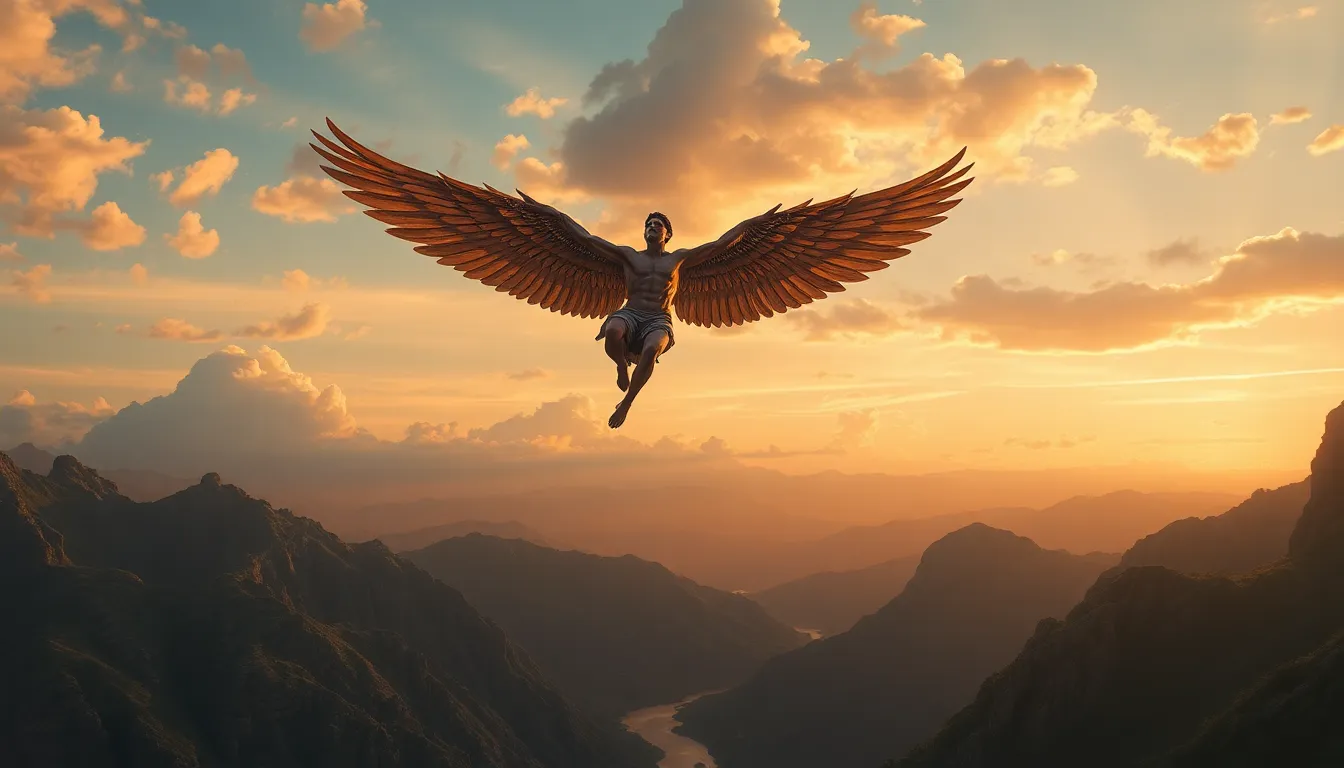How the Legacy of Daedalus and Icarus Continues to Inspire
I. Introduction
The myth of Daedalus and Icarus is one of the most enduring tales from Greek mythology, encapsulating themes of ambition, creativity, and the consequences of human actions. Daedalus, a master craftsman and inventor, constructs wings for himself and his son Icarus to escape from the labyrinth of Crete. However, Icarus’ reckless disregard for his father’s warnings leads to his tragic fall, serving as a powerful reminder of the balance between aspiration and caution.
The legacy of this myth transcends its narrative, influencing literature, art, and culture throughout the ages. This article explores the enduring inspiration drawn from the story of Daedalus and Icarus, highlighting its relevance in contemporary society.
II. The Myth: A Brief Retelling
The story of Daedalus and Icarus is rich in symbolic meaning and moral lessons. Key elements include:
- Daedalus’ Ingenuity: A brilliant inventor, Daedalus creates intricate designs and inventions, including the Labyrinth that houses the Minotaur.
- The Creation of Wings: To escape from Crete, Daedalus constructs wings made of feathers and wax, teaching Icarus how to fly.
- The Fall of Icarus: Ignoring his father’s warnings, Icarus flies too close to the sun, melting the wax in his wings and plummeting into the sea.
This myth embodies themes of ambition and creativity, as well as cautionary tales about hubris and overreaching. Daedalus represents the pinnacle of human skill and artistry, while Icarus symbolizes youthful desire and the urge to transcend limits.
III. Symbolism of Flight and Freedom
The act of flying in the myth serves as a multifaceted metaphor for human ambition and the desire for freedom. Flight represents:
- Ambition: The wings symbolize the heights of human aspiration and the drive to achieve greatness.
- Freedom: Flying signifies liberation from earthly constraints and societal limitations.
- Consequence: The duality of flight also highlights the peril that accompanies unchecked ambition.
These themes resonate in modern society, where individuals constantly seek freedom and self-expression, often grappling with the consequences of their ambitions.
IV. Lessons on Innovation and Risk
Daedalus serves as a powerful symbol of innovation and ingenuity. His ability to create and invent reflects the human capacity for progress and the pursuit of knowledge. However, the story also emphasizes the importance of caution:
- Balance Between Ambition and Caution: Icarus’ downfall illustrates that ambition must be tempered with wisdom and awareness of risks.
- Real-World Applications: In entrepreneurship and technology, the lessons from Daedalus and Icarus encourage a careful approach to innovation, emphasizing calculated risks rather than reckless abandon.
V. Cultural References and Adaptations
The influence of Daedalus and Icarus extends across various forms of art and literature, inspiring countless adaptations:
- Visual Arts: Artists like Pieter Bruegel the Elder and Paul Klee have depicted the myth, capturing the poignant moment of Icarus’ fall.
- Literature: Writers such as Ovid and more contemporary authors have drawn on the myth to explore human themes of ambition and failure.
- Film and Theater: The story’s themes have been adapted into numerous films and plays, demonstrating its versatility and relevance.
The story of Daedalus and Icarus remains not only a cornerstone of Greek mythology but also a universal tale that resonates across cultures and eras.
VI. Psychological Interpretations
The myth serves as a reflection of human psychology, presenting concepts that are deeply ingrained in the human experience:
- Hubris: Icarus’ ambition leads to his tragic fall, embodying the dangers of excessive pride and overconfidence.
- The Human Condition: The story resonates with contemporary issues, reflecting the struggles of ambition, the fear of failure, and the quest for identity.
Understanding these psychological dimensions allows modern audiences to connect more deeply with the myth and its implications for human behavior.
VII. Educational Impact and Moral Lessons
The myth of Daedalus and Icarus is often used in educational settings to impart moral lessons:
- Critical Thinking: Analyzing the story encourages students to explore themes of ambition versus caution.
- Moral Lessons: The tale teaches the importance of humility and the potential consequences of reckless ambition.
By engaging with mythological narratives, students develop a greater understanding of ethical considerations and human behavior.
VIII. Conclusion
The legacy of Daedalus and Icarus endures through the ages, offering rich lessons on ambition, creativity, and the balance of risks. Their story remains relevant in shaping modern values and aspirations, reminding us of the importance of learning from the past.
As we navigate our own ambitions, the tale of Daedalus and Icarus serves as a timeless guide, inspiring future generations to pursue their dreams while remaining mindful of the potential consequences of their actions.




